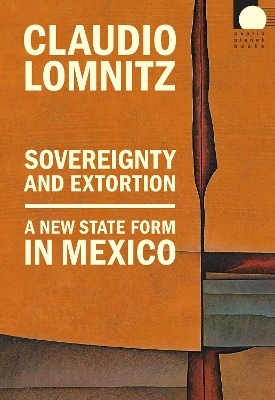
Sovereignty and Extortion
A New State Form in Mexico
Seiten
2024
Duke University Press (Verlag)
978-1-4780-3073-7 (ISBN)
Duke University Press (Verlag)
978-1-4780-3073-7 (ISBN)
Claudio Lomnitz proposes a new theorization of the Mexican state in relation to extreme violence, showing how the current crisis represents a fundamental shift in the relationship between the state and the economy in which the rule of law has eroded.
Over the past fifteen years in Mexico, more than 450,000 people have been murdered and 110,000 more have been disappeared. In Sovereignty and Extortion, Claudio Lomnitz examines the Mexican state in relation to this extreme violence, uncovering a reality that challenges the familiar narratives of “a war on drugs” or a “failed state.” Tracing how neoliberal reforms, free trade agreements, and a burgeoning drug economy have shaped Mexico’s sociopolitical landscape, Lomnitz shows that the current crisis does not represent a tear in the social fabric. Rather, it reveals a fundamental shift in the relationship between the state and the economy in which traditional systems of policing, governance, and the rule of law have eroded. Lomnitz finds that power is now concentrated in the presidency and enforced through militarization, which has left the state estranged from itself and incapable of administering justice or regaining control over violence. Through this critical examination, Lomnitz offers a new theory of the state, its forms of sovereignty, and its shifting relation to capital and militarization.
Over the past fifteen years in Mexico, more than 450,000 people have been murdered and 110,000 more have been disappeared. In Sovereignty and Extortion, Claudio Lomnitz examines the Mexican state in relation to this extreme violence, uncovering a reality that challenges the familiar narratives of “a war on drugs” or a “failed state.” Tracing how neoliberal reforms, free trade agreements, and a burgeoning drug economy have shaped Mexico’s sociopolitical landscape, Lomnitz shows that the current crisis does not represent a tear in the social fabric. Rather, it reveals a fundamental shift in the relationship between the state and the economy in which traditional systems of policing, governance, and the rule of law have eroded. Lomnitz finds that power is now concentrated in the presidency and enforced through militarization, which has left the state estranged from itself and incapable of administering justice or regaining control over violence. Through this critical examination, Lomnitz offers a new theory of the state, its forms of sovereignty, and its shifting relation to capital and militarization.
Claudio Lomnitz is Campbell Family Professor of Anthropology at Columbia University and the author of several books, including Nuestra América: My Family in the Vertigo of Translation, The Return of Comrade Ricardo Flores Magón, and Death and the Idea of Mexico.
Preamble ix
1. Interpretation of the “Torn Social Fabric” 1
2. The State Estranged from Itself 29
3. The Armed Wing of the Informal Economy 67
4. Regional Systems of the Criminal Economy 101
5. Island of Rights, Sea of Extortion 139
6. Contingency as the New Zeitgeist 171
Notes 197
Bibliography 203
Index 211
| Erscheinungsdatum | 04.07.2024 |
|---|---|
| Reihe/Serie | Public Planet Books |
| Zusatzinfo | 1 illustration |
| Verlagsort | North Carolina |
| Sprache | englisch |
| Maße | 140 x 203 mm |
| Gewicht | 295 g |
| Themenwelt | Sozialwissenschaften ► Ethnologie |
| Sozialwissenschaften ► Politik / Verwaltung ► Politische Theorie | |
| Sozialwissenschaften ► Soziologie | |
| ISBN-10 | 1-4780-3073-9 / 1478030739 |
| ISBN-13 | 978-1-4780-3073-7 / 9781478030737 |
| Zustand | Neuware |
| Haben Sie eine Frage zum Produkt? |
Mehr entdecken
aus dem Bereich
aus dem Bereich
ein Vortrag
Buch | Softcover (2024)
Suhrkamp (Verlag)
CHF 13,95
Geschichte, Vordenker, Organisationen
Buch | Softcover (2023)
C.H.Beck (Verlag)
CHF 18,90


